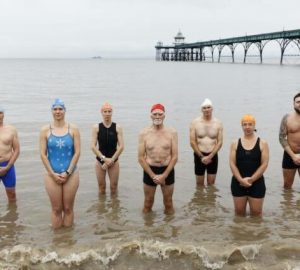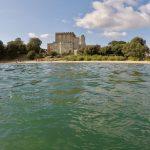What have railways and reservoirs got in common?
There was a story on the BBC website recently about people campaigning to keep railway level crossings open. National Rail, it seems, has a policy of closing them down. In the UK, it is drummed into us from an early age that level crossings, like reservoirs, are extremely dangerous and to be avoided if possible or treated with extreme caution. Why, therefore, would anyone want to keep a level crossing open?
A railway is a barrier. Closing level crossings restricts access to whatever is on the other side. In one case, the argument against closure was not just the extra distance people had to travel but that the alternative route took them alongside a major road and potentially put them in more danger than if using the level crossing.
From the railway operator’s point of view closing a level crossing makes the railway safer and improves their accident statistics; it is undisputable that people die on level crossings every year. But from a broader perspective, closing the crossing perhaps just shifts the risk to somewhere else – the nearby road in the example above.
Even if the alternative route isn’t more dangerous, people still suffer the loss of a local amenity – perhaps a park where they used to run or take the children to play. As a consequence, their quality of life decreases or they take less exercise and become more prone to the ill effects that brings.
What’s this got to do with reservoirs? Well, the water authorities that control them, in most cases, are extremely anxious to keep swimmers out (see below for a rather alarming and somewhat unrealistic video from Welsh Water for example). Quite rightly they don’t want people to drown. But despite the authorities’ repeated warnings of how deadly reservoirs are, there are definitely more dangerous places to swim. If you forbid people from swimming in reservoirs there’s a good chance they will explore these other swimming spots. If they come to harm there the water authority won’t be liable in any legal sense but is there still a moral responsibility?
Or perhaps with their scaremongering, the water authorities hope to put people off any sort of outdoor swimming. How sad would that be?
Many reservoirs could host beautiful and reasonably safe (although never risk free) open water swimming spots. Imagine if swimmers were encouraged to congregate in a specified boat-free area where they could keep a look out for each other. In my view, one of the biggest dangers of open water is that many people have little experience of it, and therefore little knowledge on how to approach swimming in it safely. Give people more opportunities to try it and they will build the experience they need to stay safe. Occasionally there will be a disaster and someone will drown (as they also do in swimming pools) but overall, by exposing more people more frequently to open water, could we make society safer – or at least help people to live healthier and happier lives?






